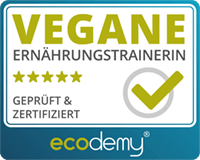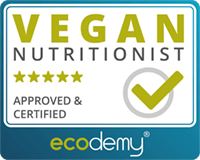Athletes Benefit From Plant-Based Dieting
How do active people plan their vegan diet to enhance their health and performance?

Visit activeplantbased for professional help and plant-based nutrition training.
Shifting to a plant-based diet may seem counter-intuitive and bring much doubt on whether an active person can meet their daily nutritional needs. Can it be done safely?
All Key Points
- A well-planned, balanced vegan diet has positive effects on the health & performance of the athlete.
- It’s easy to design a plant-based diet. Contact activeplantbased for 1-on-1 help.
- The high micronutrient density, dietary fibres, and phytochemicals in plants positively affect health.
- Eat plant-based foods that are both high and low in energy density & fat.
- Eat plant-based foods high in micronutrient density, carbohydrate content, protein, dietary fibre, antioxidants, vitamins, and minerals.
- Minerals athletes should have an eye on Zinc, calcium, iron, and magnesium.
- Plant-based eating can assist weight management, lower the chance of certain diseases, and support the immune system, enhancing physical and cognitive performance.
- Plant-based eating contributes to human longevity, animal welfare, and the planet.
Meeting our daily nutritional needs
To cover their daily protein intake, many athletes include meat (especially chicken) and other animal-derived products in their everyday diet.
The current data
The studies conducted on vegan athletes are not many however, one thing has become clear:
A vegan diet, given that it is balanced and well-planned, does not affect an athlete’s performance negatively whatsoever.
Advantages of veganism on health
Many who have adopted a vegan diet have reported that their performance was not negatively affected, as some would assume.
It is, in fact, not that difficult to design a vegan diet in a way that will be suitable for people who can’t stop moving.
Due to the high micronutrient density, dietary fibres, and phytochemicals, plant-based diets are associated with positive effects on health, thus decreasing the risk for chronic diseases.
Antioxidants in plants could also accelerate regeneration, helping the athlete perform.
Plant-based diets can be high or low in calories, depending on the desired outcome. Keeping the calories low will make you lose weight over time, and increasing them over your daily bodily need will make you gain weight.
What does a balanced plant-based diet look like?
- Eat both high and low-energy-density foods.
A plant-based diet can help meet different needs of the desired daily calorie intake.
Energy-dense sources are high in calories and help you gain weight. An energy-dense source would be e. g. pumpkin seeds, hummus, or vegan cake.
Low-energy sources are low in calories and would be, e. g. carrots, salad, or broccoli. Low energy means that there are fewer calories per gram of a plant.
- Eat foods with a high micronutrient density.
These are especially important for those going down the road of weight gain or loss.
Kale, for instance, is exceptionally high in vitamins A, C, K1, B6, potassium, calcium, magnesium, copper, and manganese while being very low in calories.
- Eat plants that contain different fat contents.
Fruits, starchy vegetables, legumes, whole grains, leafy greens, herbs, spices, and mushrooms all contain low or no fat.
Nuts, seeds, and coconuts are fatter. These fats are considered healthy fats.
Plant oils, processed or baked goods, vegan cheese, etc., are considered high-fat foods.
Depending on your wants and needs, you might want to find the right balance suiting your body and lifestyle.
- Eat foods with a high carbohydrate content.
Foods like quinoa contain 70% of carbs.
Side note: When something is high in carbohydrates, it is not bad automatically. In fact, healthy carbs are underrated and way too important to simply disregard them.
Quinoa, for instance, is also a good source of protein, fibre, minerals, and phytochemicals. Oats, buckwheat, sweet potatoes, chickpeas, beans, and beets are considered high-carb foods with varying percentages of carbs.
Blueberries, oranges, apples, bananas, and grapefruits contain around 10–15% carbs, making them high-carb fruits.
- Eat vegetables with a high proportion of protein.
Tofu, seitan, tempeh, tahini, and protein powder, naturally contain a high proportion of protein.
Foods like beans, lentils, and legumes also contain a relatively high amount of protein but are generally a high-carb source.
Mixing various foods like corn and beans helps complement and balance the amino acid profile, rendering our meal into complete protein sources.
- Eat high-dietary fibre foods.
Pears, strawberries, avocados, apples, raspberries, bananas, carrots, beets, broccoli, artichokes, brussels sprouts, lentils, beans, peas, chickpeas, quinoa, oats, popcorn, almonds, chia seeds, coconut, pistachios, various nuts, potatoes, dark chocolate are all in high in fibre.
Generally speaking, a plant-based diet is usually higher in fibre than a mixed diet due to the high amount of veggies, fruits, and more.
- Eat foods with a high antioxidant content and vitamin content.
Pecans, dark chocolate, various berries, green leafy vegetables, and cabbage are all high in antioxidants and vitamins.
Every plant-based source provides at least one type of vitamin, so eating the rainbow is an excellent first approach.
- Eat foods with high content of mineral substances.
Athletes or people who do loads of sports want to ensure that minerals like zinc, calcium, iron, and magnesium are sufficient in their bodies.
Minerals
- Zinc can be found in whole grains, pseudo-cereals, legumes, pumpkin seeds, sesame seeds, and porcini mushrooms.
Combining zinc with organic acids, like the acid in fruits or pickled cucumbers, can increase zinc absorption.
Tea and coffee might inhibit zinc absorption due to the tannins they contain. You can avoid that if you take a break between your meal and your coffee or tea.
- Calcium can be found in green veggies, like broccoli, kale, pak choi, sesame seeds or tahini, poppy seeds, figs, tofu, almonds, and plant-based drinks fortified with calcium.
The availability of calcium can also be increased with fruit acids, e. g. squeeze lemon on top or soaking, fermenting, and even cooking.
- Iron-rich plant foods are legumes, nuts, whole grains, pseudo-grains, dates, and green leafy vegetables.
Now to get to the haem iron, which is usually lower in plants than in animal-derived foods, you might want to combine the iron of the plant source with vitamin C, which again can be found in lemons, oranges, and kiwis, and also, peppers!
Fermented products such as miso or tempeh also have a good iron-bioavailability.
Again, tea and coffee, due to their tannins, should be consumed sometime after your meal.
Magnesium
A good source of magnesium is whole grain products, legumes, sunflower seeds and nuts.
Mineral water can also be used to supplement magnesium intake.
Soaking, sprouting and fermenting all reduce phytates and oxalates.
Benefits
Athletes can benefit greatly from all mentioned above and even positively increase their overall effectiveness.
All the food components mentioned above help
- assist weight management
- lower chance of chronic diseases
- support the immune system
…which enhances the active person’s physical and cognitive performance.
By eating a balanced, plant-based diet, athletes are more likely to get back to training quicker and therefore have more time and opportunities for improvement while contributing to human longevity, animal welfare, and the planet.
Sources.
Boutros et al., 2020, Craddock et al., 2016
Nebl et al., 2019a; Nebl et al. 2019b
Larson-Meyer, 2018
healthline.com
my study material

